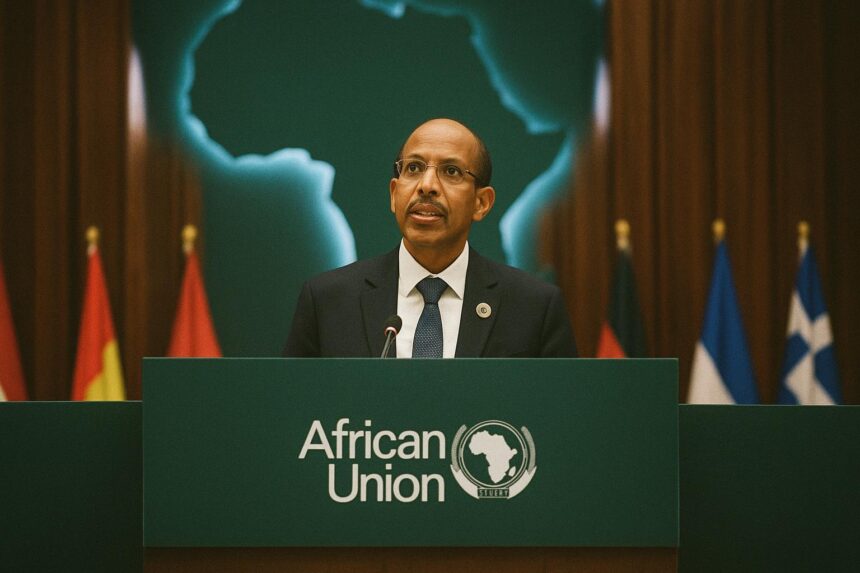Continental demand for credible ballots intensifies
When the African Union’s Peace and Security Council convened for its 1,288th meeting this summer, the stakes were unmistakable. Nineteen national elections are scheduled on the continent before the end of 2026, several in contexts where institutional fragility invites dispute. The semi-annual report presented by Commission President Moussa Faki Mahamat therefore placed unusual emphasis on one initiative: the cycle of electoral-observer training hosted in Rabat, a partnership between the Kingdom of Morocco and the AU’s Department of Political Affairs, Peace and Security (African Union Commission, 2025).
- Continental demand for credible ballots intensifies
- A training laboratory in Rabat
- Gender parity moves from rhetoric to logistics
- Strategic dividends for Central Africa
- Morocco’s calibrated soft power
- Financing and scalability remain testing grounds
- A measured step toward continental democratic resilience
A training laboratory in Rabat
Since its launch in June 2022 the Rabat programme has graduated more than 300 short-term observers, 120 of them during the April 2025 session alone. Drawn from fifty-two member states and spanning the continent’s five sub-regions, the participants undergo intensive modules on legal frameworks, data-driven observation techniques, rapid reporting and de-escalation protocols. Diplomats familiar with the curriculum describe it as a hybrid between military precision and academic reflection, delivered jointly by Moroccan career officials and AU specialists. By the closing ceremony, trainees receive a deployment-ready accreditation that feeds directly into the Union’s roster of observers.
Gender parity moves from rhetoric to logistics
Institutional documents often invoke gender equality, yet implementation falters where budgets or security planning are silent. The Rabat cycle confronts that gap head-on. Of the 300 graduates to date, 175 are women, and the concluding seminar—hosted by the Policy Center for the New South at Mohammed VI Polytechnic University—produced a five-point Rabat Call to Action. Among its provisions are binding gender quotas within election management bodies, ring-fenced funds for the protection of female observers, rapid-response units against gender-based violence, youth-led human-rights monitoring networks, and mandatory sex-disaggregated electoral data (Policy Center for the New South, 2025). Seasoned observers note that translating these commitments into operational directives could shift the AU from declaratory politics toward measurable inclusion.
Strategic dividends for Central Africa
The Republic of Congo, preparing municipal polls in 2026, quietly welcomed the AU’s endorsement. Brazzaville’s Foreign Ministry sources point to the potential deployment of freshly trained observers as a confidence-building mechanism that complements the government’s own modernisation of its electoral commission. In a region where external scrutiny sometimes meets with suspicion, the African-led nature of the initiative mitigates perceptions of tutelage while still delivering technical oversight. Congolese civil-society figures interviewed for this article concede that a continental roster, versed in comparable legal traditions and languages, may improve the speed and nuance of post-election mediation.
Morocco’s calibrated soft power
For Rabat, the programme sits comfortably within a broader diplomacy of pragmatic multilateralism. By funding travel, accommodation and an expanding digital platform—reportedly built on the same encrypted architecture used during the 2022 IMF-World Bank meetings—Morocco signals capacity without overtly courting political allegiance. Analysts at International IDEA liken the approach to a form of “technical non-alignment”: the sponsor accrues reputational credit while avoiding entanglement in specific electoral disputes. That stance resonates in Addis Ababa, where AU officials repeatedly stress member-state ownership of democratic norms.
Financing and scalability remain testing grounds
The Rabat trainings have so far relied on a trilateral financing mix—Moroccan treasury allocations, AU regular budget lines and modest contributions from the UN Development Programme. Sustaining annual intakes of a similar scale will require either a diversified donor base or a cost-sharing formula among beneficiary states. Abuja and Pretoria have voiced exploratory interest in hosting parallel modules, yet logisticians caution that curricular consistency is paramount if certification is to retain its credibility. A decision on expansion is expected at the next AU Executive Council session in February 2026.
A measured step toward continental democratic resilience
In a climate where coup pronouncements travel faster than court verdicts, the symbolism of 300 highly trained, gender-balanced observers ready for deployment is not trivial. It underscores a pragmatic recognition that electoral integrity is increasingly a matter of regional security as much as domestic governance. Whether in Kinshasa, Luanda or Brazzaville, governments eager to consolidate legitimacy can ill afford to overlook such resources. As the AU report concludes, the Rabat model offers a replicable blueprint: technical, inclusive and—perhaps its greatest virtue—quietly African.




















